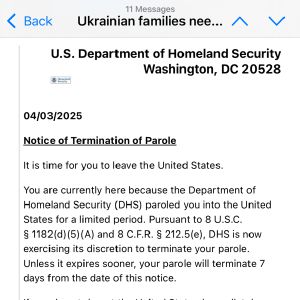Opinion: Local boards and jurisdictional authority in Concord

Rundlett Middle School, looking down a hallway of sixth-grade classrooms on Tuesday, Aug. 9, 2016. Monitor file
|
Published: 06-26-2024 6:00 AM
Modified: 06-26-2024 11:50 AM |
Craig Walker served as zoning administrator for the City of Concord for over 13 years during a 32+ year career with the city. He retired in 2021.
In the debate about the placement of the next middle school, there are some lingering questions that I find troubling and, to the best of my knowledge, have not been formally addressed. To start, is the placement of a major public community building a community development and planning question rather than an educational/financial question, and does the school board have jurisdictional authority to make community planning and development decisions?
Most every board, commission and committee at the municipal level is granted specific jurisdictional authority by state-enabling legislation. The school board has stated that it has exclusive jurisdictional authority over educational and related financial decisions for the Concord School District and that no other board, commission or committee has authority to usurp the school board’s jurisdictional authority.
However, the reverse is also true where other boards at the municipal level have exclusive jurisdictional authority that the school board may not usurp. What I have not heard claimed is that the school board has jurisdictional authority over community development and planning issues such as the placement of a major public community building.
I believe, according to state-enabling legislation, the jurisdictional authority for community planning and development in Concord is vested with the planning board and the community development department (CDD) which coordinate their activities in conjunction with the city council/ hall.
The placement of a major facility such as a middle school has a significant impact on future residential development, future commercial development, sewer system capacity and expansion, water system capacity and expansion, roadway expansions, traffic and pedestrian safety, and public safety, just to name a few areas that will be impacted. All these items listed are under the jurisdictional authority of the community development department (CDD), planning board, and ultimately city council.
We as taxpayers invest our tax dollars in the professional planners, engineers and inspectors hired by the CDD so that they can research, evaluate and make well thought out recommendations about future city expansion to the citizens of Concord that are fully reviewed and vetted through the planning board, city council and the public hearing process. The school district does not employ community development professionals because those are tasks that generally do not fall under the jurisdictional authority of the school board.
Perhaps there has been a formal decision or there is state-enabling legislation that I am not aware of but at this point, I must continue to contemplate, does the placement of the middle school in our particular set of circumstances have more to do with community development and planning than any question of the quality or cost of education? And, should a decision that will have such a significant impact on the future planning and community development of the city of Concord be a decision made by community planning and development experts or educational experts?
Article continues after...
Yesterday's Most Read Articles
 After four decades collecting carts, Ricky Tewksbury will retire when Shaw’s closes mid-April
After four decades collecting carts, Ricky Tewksbury will retire when Shaw’s closes mid-April
 Written shooting threat sends Concord High students home early
Written shooting threat sends Concord High students home early
 ‘It’s everything’: In largest rally yet, Trump protestors descend on Concord
‘It’s everything’: In largest rally yet, Trump protestors descend on Concord
 DHS email error causes stress, anxiety for New Hampshire's Ukrainian community
DHS email error causes stress, anxiety for New Hampshire's Ukrainian community
 ‘There was no oversight’: NH child advocate has been a watchdog for children's care. Now, the office is on the chopping block
‘There was no oversight’: NH child advocate has been a watchdog for children's care. Now, the office is on the chopping block
It is possible that even after a full review by the appropriate professionals, the proper location for the proposed middle school might be at the edge of the population center, with limited road access and where the most direct pedestrian access from the residential areas south of 393 is over a high traffic bridge that is jammed with snow over most of the winter (remember the 393 bridge and the wheelchair-bound pedestrian fatality and problems getting to the Friendly Kitchen?) but at least it would be an informed decision that was properly and fully vetted.
These questions arise out of the singularly unique situation that Concord finds itself in because we have the city council and the school board acting as two independent, sometimes competing, governing bodies. It is inevitable that when there are two separate governing bodies there will come a time when there are conflicts in jurisdictional authority that may require formal, legal determinations. This may be one of those times.







 Opinion: Courage and care count
Opinion: Courage and care count
